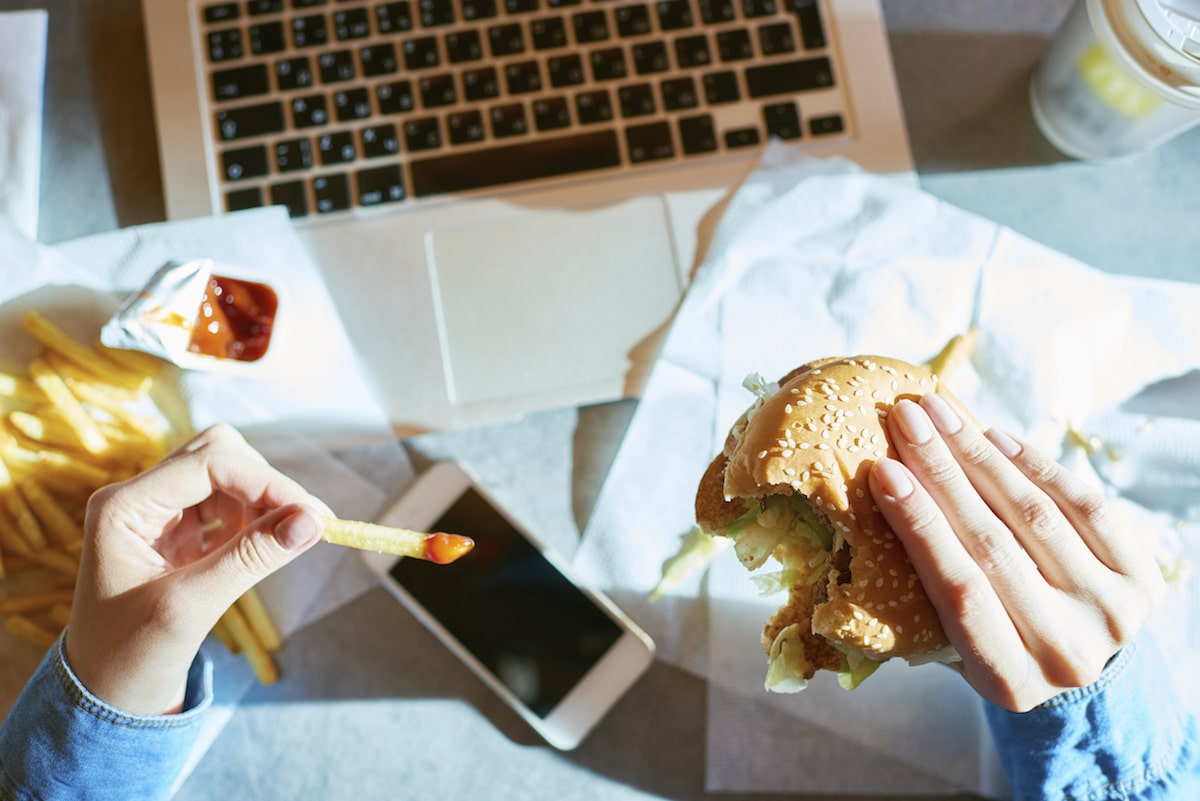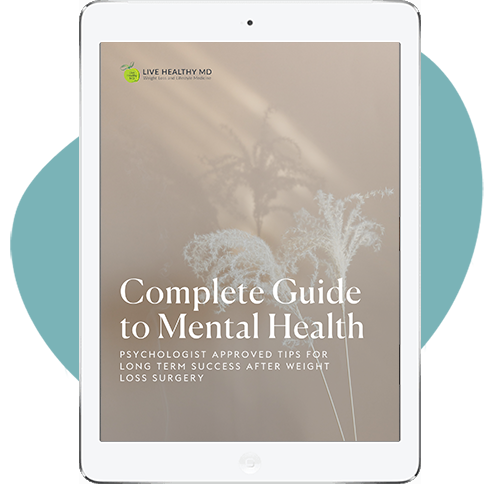
Stress eating, or “emotional eating” seems to be as common a problem as mosquitos at a Fourth of July picnic! In fact, when I work with patients who are struggling with weight regain, the majority of them attribute the increase in pounds to “stress.” I remind each of them, in a playful, yet serious way, that eating, and not stress, results in weight gain.
What is Stress?
Stress is actually the way your body reacts to changes that require some sort of adjustment or response. Our bodies deal with stress physically, mentally and/or emotionally, whether the stress is internal or external.
Patterns of Eating when Stressed out
Many of us were taught to deal with any sort of stress by soothing, comforting or celebrating our stressors with food. When you were a preschooler and went to the doctor for shots, mommy took you for ice cream afterward to feel better. When you didn’t make the volleyball team in middle school, dad took you to get your favorite dessert to make you feel better. When you graduated from middle school and prepared to enter high school, the family went to dinner to celebrate your developmental milestone. Even though moving on to high school is a positive thing, there are stressors associated with the many changes that accompany being in high school.
As an adult, of course you then turn to food to “deal with” (or, more accurately, to NOT deal with) your stressors. When you have an uncomfortable medical procedure, you go out for ice cream. It helped after the shots when mom took you!
When you’re given a bad review by the boss, you automatically look for that dessert that made you feel better as a middle schooler who felt rejected by the coach. When you get that promotion you’ve been hoping for (the one that requires a cross-country move), you celebrate by going to your favorite fancy restaurant, just like when you graduated into high school. And quite often, emotional eating goes hand-in-hand with binge eating.

Steps to Overcome Stress Eating
If you’re a “stress eater,” or an “emotional eater,” and you want to stop that habit, there are a couple of things you need to put a great amount of effort into. Effort! Am I saying you have to work to change this behavior? Why, yes, I am!
Anything worth having is worth working for, and this is no exception.
Building Awareness
What is the reason I am eating right now?

The first thing you will need is awareness. Awareness of when you are engaging in stress eating, whenever you find yourself putting food (of any sort, including candy, snack foods, sodas, juice, etc.) into your mouth, ask yourself, “What is the reason I am eating right now?”
Then be honest with yourself. The reason may be, “It’s meal time and eating is what I do at meal time.” It may be, “I was bored,” or “I was mad,” or “I’m really not sure.”
Then pay attention to what you are eating and ask, “What is the reason I chose to eat ____?” This is a great question to ask even if you don’t consider yourself to be an emotional eater. If your goal is to live at a healthy weight, then always evaluate the quality of what you’re eating with that goal.
How am I feeling right now?
The next question to ask, whenever you’re eating, is, “How am I feeling right now?” And if you’re not in tune to your emotions, feelings can broadly fit under “angry, sad, scared, and happy.”
Ask yourself if your reason for eating and for eating whatever it is you have chosen, are in response to your emotions. You want to learn if you have subconscious connections between food and emotions.
You may discover that when you’re sad, you seek pudding or ice cream, which are smooth and creamy and perhaps soothing. When you’re angry, you are eating chips or other crunchy snacks. Look for patterns. And then seek alternative solutions for when you are experiencing those emotions (which are linked to some forms of stress).
How to Deal with Emotions
Have a list of healthy alternative behaviors to replace eating when you are sad, angry, scared or happy. The idea is to deal with your feelings in healthy ways, rather than by consuming unhealthy, calorie-filled foods and potentially causing harm to your body. Remember, adding pounds results in physical comorbidities.
Healthy ways to deal with sadness, anger, fear or joy are to write about what is happening and how you are feeling. Journals are great places to release emotions. As you write, you process the thoughts that are related to your emotions. You get both the thougths and the emotions out of your head and can move on to the next part of your day.
Calling someone and talking to them about your thoughts and feelings is also a great way to deal directly with how you are experiencing the situation related to those emotions. If you’re busy, jot down the event and the feelings associated with it, stick the note somewhere you can find it, and deal with it later in a healthy way.
Sometimes going to your car and having a good scream or cry can get the emotions out. You can talk to others about their healthy coping skills and do a search online for “healthy coping skills.”
Conclusion
Naturally, you want to keep your environment free of foods that could sabotage your efforts. Here are some tips:
- Keep unhealthy foods out of your home, your car and your office.
- Set boundaries for yourself and stick with them, just as you would stick to a healthy bedtime for young children, regardless of how much they protest.
- Tell yourself fast food is not an option for you.
- Refuse to allow food in your car, bedroom or where you watch television or read.
- Set yourself up for success.
Finally, refuse to let stress or emotions be an excuse for eating foods that will steer you away from your goals of living at a healthy weight and having an amazing quality of life. You’re worth it, and so are the people who have the joy of knowing you! Choose to be your best self!












